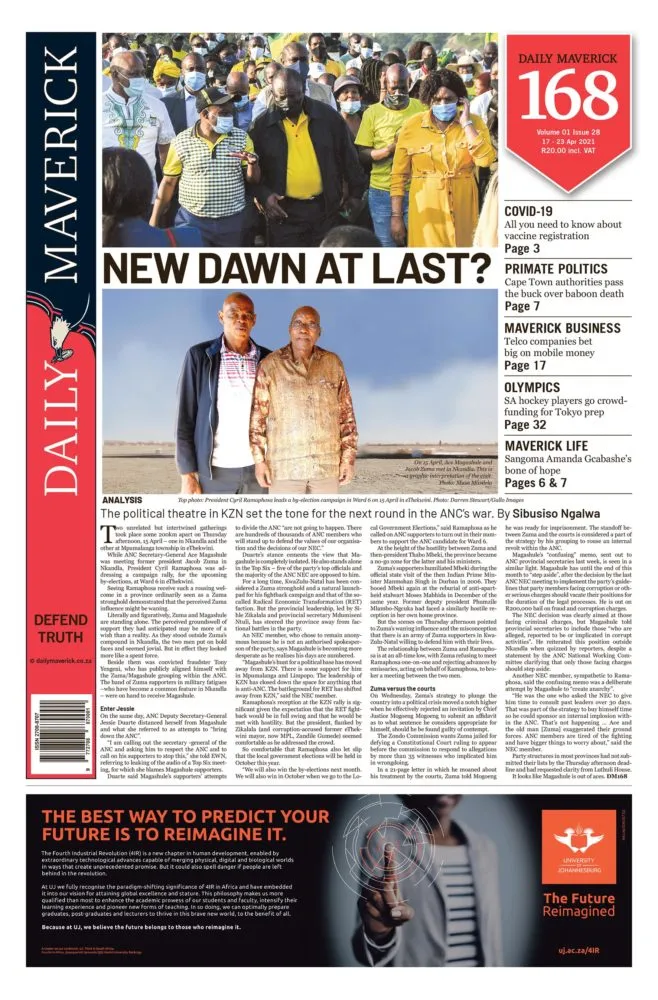Seriti deal shows just how badly Australia’s South32 wants to exit South Africa
- Get link
- X
- Other Apps
R1. That’s always good. South32 is being admirably responsible and not just walking away. It’s also providing the ostensible buyer, Seriti in this case, with R10-billion in vendor financing. Then, because this wasn’t enough, it added in April this year, another $200-million (R3.4-billion) to fund rehabilitation, and $50-million (R850-million) to fund certain lossmaking mining areas.
There were a mass of South African companies that applied to be the buyer. I mean, who wouldn’t? And consequently, there are lots of sore losers out there. Throw in the truck-coal suppliers, who are now a big lobby group loosely associated with the Radical Economic Transformation faction of the ANC, and you have a real problem.
So this deal has been getting lots of bad press, particularly because there are a host of genuine underlying problems. The most political is the claim that the CEO of Seriti, Mike Teke, is a Cyril Ramaphosa supporter, and contributed to financing the president’s campaign to the tune of R600,000. The claim is that Teke is getting a sweet deal as payback. Seriti says this is nonsense: the contribution happened years ago and, by the standards of contributions at the time, it was pretty small. In any event, the buying consortium includes Sandile Zungu, who was at one point a big Zuma supporter.
The more telling criticism is that Seriti already bought most of Anglo American’s thermal coal assets two years ago and, should this South32 deal go through, it becomes a very heavyweight player in the industry. You can see that already because it’s party to negotiations with Eskom and Treasury to increase its coal price for the Duvha power station, which it claims is heavily underwater. Treasury is suspicious, but South32/Seriti claims it’s not looking for a bonsella; it just wants to mine at more-or-less breakeven.
But the rate of the underpayment by Eskom is eye-popping: Eskom was paying around 50% of the going rate for coal. South32 was presumably prepared to carry these losses because, on the other side, it has a favourable electricity supply contract from Eskom for its aluminium smelters in Richards Bay. But it’s much less easy for the new company to justify these losses, so it’s understandable they would want to fix it before the contract is finalised. The alternative is to close the mine, which would be crazy, since it supplies Duvha on a conveyor belt.
The loser here (surprise!) will be electricity users, who are going to pay more, a lot more, for the coal. One estimate of the additional cost is that it will come to R40-billion over 14 years. But if you run your mining sector badly, this is the price you – or, more precisely, we – pay. DM168
This story first appeared in our weekly Daily Maverick 168 newspaper which is available for free to Pick n Pay Smart Shoppers at these Pick n Pay stores.
Story corrected to reflect the mining rights nationalisation process began in 1998 not 1989. Apologies for the error.

Comments - share your knowledge and experience
Please note you must be a Maverick Insider to comment. Sign up here or sign in if you are already an Insider.
Everybody has an opinion but not everyone has the knowledge and the experience to contribute meaningfully to a discussion. That’s what we want from our members. Help us learn with your expertise and insights on articles that we publish. We encourage different, respectful viewpoints to further our understanding of the world. View our comments policy here.
All Comments 2